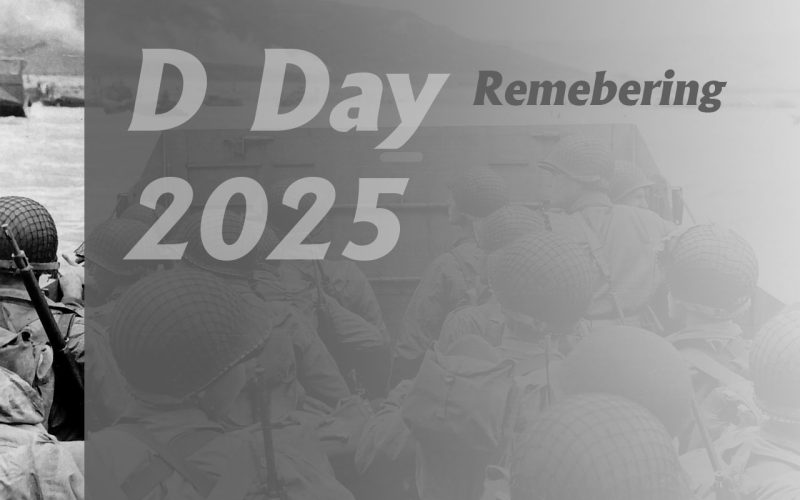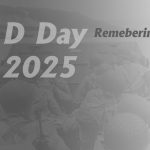As dawn broke over the historic beaches of Normandy on June 6, 2025, marking the 81st anniversary of D-Day, a sobering reality cast its shadow over this year’s commemoration. Only about 66,000 American World War II veterans remain alive as of 2024, representing fewer than 0.5% of the original 16.4 million who served, making this potentially the final generation to witness firsthand accounts of that pivotal day in history.
Will Time Finally Defeat What Nazi Germany Couldn’t?
The numbers tell a story more dramatic than any Hollywood war film. With fewer than 8,000 WWII veterans expected to survive by 2030 and near zero by 2036, the 2025 D-Day commemoration carries an unprecedented weight of finality. The Best Defense Foundation, which brought 50 veterans to Normandy last year, managed to bring only 23 this year – a stark reminder of mortality’s relentless advance.
Among those who made the journey was 102-year-old Jake Larson, who survived the machine gun fire that claimed so many of his brothers-in-arms at Omaha Beach. “We are the lucky ones… They had no family. We are their family. We have the responsibility to honor these guys who gave us a chance to be alive,” Larson reflected, his words carrying the weight of eight decades.
Will Mike Lindell’s Shocking Testimony Backfire in Historic Defamation Trial?
What Made These Men Lie About Their Age to Fight?
The veterans returning to Normandy in 2025 represent a generation defined by extraordinary sacrifice. Jack Stowe, now 98, admitted he lied about his age, claiming to be 15 years old to join the Navy following Pearl Harbor in 1941. Such was the determination of young Americans to serve their country during its darkest hour.
The scale of Operation Overlord remains staggering even by today’s standards. More than 2 million troops gathered in the UK in preparation for the invasion, with forces from the United States, United Kingdom, Canada, Australia, Belgium, Czech Republic, France, Greece, Netherlands, New Zealand, Norway, and Poland participating. The coordination required for this multi-national assault was unprecedented in military history.
Why Do French Children Still Write Letters to American Heroes?
The enduring gratitude of the French people continues to move veterans decades later. Jack Stowe still receives “the sweetest letters” from children he has met on previous trips, and French families eagerly gather around veterans, wanting to hear their stories. This intergenerational connection between liberators and liberated remains one of the most powerful aspects of the annual commemorations.
Elon Musk President Trump Alliance: Power Play or Political Gamble?
Veterans are treated like “rock stars” in the Normandy region, being handed notes and hearing countless “thank yous” from grateful French citizens. This reception speaks to the enduring impact of June 6, 1944, when Allied forces began the liberation of Western Europe from Nazi occupation.
Could History Have Taken a Darker Turn?
The significance of D-Day becomes even more apparent when considering alternative outcomes. The U.S. National World War II Museum notes that if Operation Overlord had failed, another landing wouldn’t have been possible for at least a year, during which Hitler could have strengthened coastal defenses, developed new weapons, and continued his killing campaign.
APLD Stock Soars: Is This $7B Deal the Game-Changer Everyone Missed?
The human cost of that June morning was devastating. Around 4,440 Allied troops were confirmed dead on D-Day alone, with more than 5,800 wounded or missing. The town of Bedford, Virginia, suffered particularly heavy losses, with 20 of its 44 soldiers killed on D-Day, representing the highest known per capita D-Day loss in the United States.
Are Modern Ceremonies Enough to Preserve Their Legacy?
The 2025 commemorations took place across multiple locations, from the official ceremony at Normandy American Cemetery at 11 a.m. CET with U.S. and French dignitaries to events at the National D-Day Memorial in Bedford, Virginia. The D-Day Festival Normandy continues to invite visitors to celebrate freedom through cultural events marking the anniversary.
However, the question remains: can ceremonies and monuments adequately preserve the firsthand experiences of men who stormed those beaches? As 101-year-old Wally King observed, “This will probably be the last Normandy return, when you see the condition of some of us old guys… I hope I’m wrong”.
What Happens When the Last Witness Falls Silent?
The urgency of documenting these veterans’ experiences has never been greater. Museums, historians, and families are racing to document firsthand accounts before the last veterans pass, ensuring their experiences remain part of history. This race against time reflects a broader challenge facing all societies: how to preserve living memory when the witnesses are no longer living.
Will Mike Lindell’s Shocking Testimony Backfire in Historic Defamation Trial?
The successful deception operations that preceded D-Day, including Operation Fortitude, which convinced Hitler that Normandy was merely a diversion before the real invasion at Pas de Calais, demonstrate the complex planning that made victory possible. Such strategic thinking, combined with individual courage, created the conditions for the Allied victory that followed.
Will Their Sacrifice Echo Through Eternity?
As the sun set over Normandy on June 6, 2025, the dwindling band of D-Day veterans carried with them not just their own memories, but the collective memory of a generation that changed the world. The U.S. Department of Defense calls D-Day the “successful beginning of the end of Hitler’s tyrannical regime”, a description that seems almost understated given the operation’s global impact.
The veterans’ message remains consistent across the decades: their sacrifice was for future generations. As Jack Stowe noted, “People are not going to let it be forgotten… These stories will go on and on and on”. Whether that optimism proves justified may depend on how well we honor their legacy in the years to come.
The 2025 D-Day commemoration serves as both celebration and farewell, honoring heroes who may not return again while ensuring their stories continue to inspire future generations. In an era of global uncertainty, their example of courage, sacrifice, and international cooperation remains as relevant as ever.





